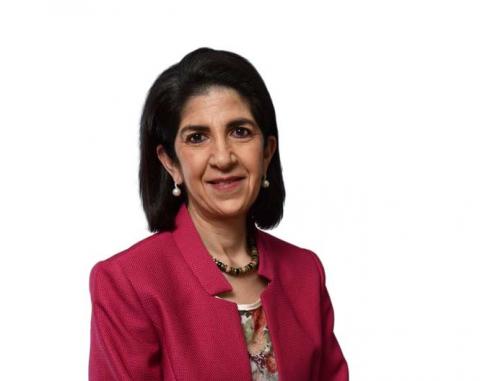I would like to wish you and your families a very happy New Year. 2019 promises to be an exciting year for CERN, offering a wealth of new challenges not only for physics, the accelerators, the infrastructure and the administration, but also for outreach, as CERN will be opening its doors to the public on 14 and 15 September. Before reviewing some of the highlights of 2018, I would like to take the opportunity to thank you for your hard work and for your commitment to the Organization. Without them, none of the year’s many outstanding achievements would have been possible. I would also like to extend my appreciation to the Member and Associate Member States for their continuous support.
Run 2 has just ended on a glorious note, with more integrated luminosity produced for the LHC experiments than foreseen, thanks to the outstanding performance of the accelerator complex over the past four years. The detectors and the computing coped very well with the deluge of data. Beautiful physics results have been produced already, and more will be released in the coming months.
CERN is much more than the LHC. In 2018 we saw significant progress across the full scientific programme. To mention only a few examples, the upgrades of the HIE/ISOLDE and AD/ELENA facilities were completed, the Advanced Wakefield Experiment, AWAKE, demonstrated electron acceleration from plasma wakefields induced by a proton beam for the first time, and the world’s largest liquid-argon neutrino detector, the single-phase proto-DUNE at the CERN Neutrino Platform, reconstructed beautiful tracks from incident test-beam particles.
It is fair to say that the long shutdown, LS2, which began in December, will not be an idle period. The upgrade of the LHC injectors (LIU project) will be completed in 2019 and 2020, and much work will be done by the accelerator teams and the experiments in preparation for Run 3 and the High-Luminosity LHC upgrade.
With the submission of input from the scientific community in December, the update of the European Strategy for Particle Physics (ESPP) has begun in earnest. The ESPP is a bottom-up process that involves the whole community. We should all commit to it and contribute to the crucial task of preparing the future of our field.
Beyond the scientific programme, the highlights of 2018 include the accession of Lithuania as an Associate Member State, as well as the admissions of Serbia as a Member State and Croatia as an Associate Member State, subject to completion of those countries’ respective internal ratification processes. The Council also approved the implementation plan for the Science Gateway project, a new facility for scientific education and outreach in the area next to the Globe of Science and Innovation.
The presentation to the personnel this morning is available at: https://indico.cern.ch/event/779524/
Together with the other members of the Directorate, I would like to wish you, once again, all the very best for 2019.
Fabiola Gianotti, Frédérick Bordry, Eckhard Elsen, Martin Steinacher and Charlotte Warakaulle

